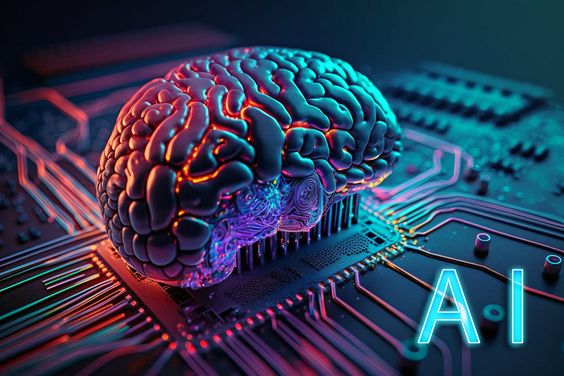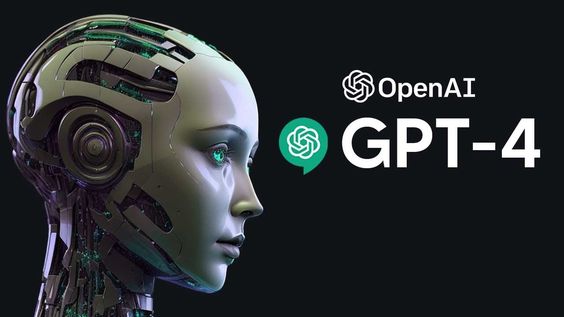The Evolution of Bing AI: From Search Engine to Intelligent Assistant
This article aims to chronicle Bing AI’s transformation from a search engine to an intelligent assistant. By examining its technological advancements, strategic innovations, and impact on user interaction, we explore how Bing AI has redefined the search landscape and positioned itself as a key player in the realm of AI-powered digital assistants.

Bing AI has undergone a transformative journey from its origins as a traditional search engine to its current state as an intelligent assistant. Initially conceived as a competitor to Google, Bing has evolved beyond conventional search capabilities, integrating advanced artificial intelligence (AI) to enhance user experiences across various digital platforms.
AI plays a pivotal role in the evolution of search technology, enabling systems like Bing AI to understand user queries, deliver more relevant results, and continuously improve through machine learning algorithms. The integration of AI has not only refined search accuracy but also expanded functionalities into voice recognition, natural language processing, and personalized recommendations.
AI plays a pivotal role in the evolution of search technology, enabling systems like Bing AI to understand user queries, deliver more relevant results, and continuously improve through machine learning algorithms. The integration of AI has not only refined search accuracy but also expanded functionalities into voice recognition, natural language processing, and personalized recommendations.
Bing AI as a Search Engine
1. Early Development and Launch
Bing AI's journey began with its development and launch as a search engine by Microsoft. Initially introduced in 2009, Bing aimed to provide users with a viable alternative to existing search engines by integrating innovative features and leveraging AI technologies for enhanced search capabilities.2. Key Features and Innovations
Throughout its evolution, Bing AI has introduced several key features and innovations to improve the search experience:3. Impact on Online Search Experience
Bing AI has significantly impacted the online search experience by:Transition to Intelligent Assistant
1. Integration of AI Technologies
With advancements in artificial intelligence (AI), Bing has transitioned from a conventional search engine to an intelligent assistant by integrating sophisticated AI technologies:2. Expansion beyond Traditional Search Functions
Bing AI has expanded its functionalities beyond traditional search to encompass a broader range of tasks and services:3. Enhancements in User Interaction and Personalization
Bing AI enhances user interaction and personalization through:Applications Beyond Search
1. Bing AI in Digital Assistants and Smart Devices
Bing AI's integration into digital assistants and smart devices has expanded its utility beyond traditional search functions:2. Role in Personalized Recommendations and Content Curation
Bing AI plays a crucial role in delivering personalized recommendations and curating content based on user preferences and behaviors:3. Contributions to Accessibility and Inclusivity
Bing AI contributes to accessibility and inclusivity by:Challenges and Ethical Considerations
1. Privacy Concerns and Data Security
Privacy and data security present significant challenges for Bing AI and other AI-driven technologies:2. Bias in AI Algorithms
Bias in AI algorithms poses ethical challenges in Bing AI's operations and decision-making processes:3. Maintaining Transparency and User Trust
Maintaining transparency and fostering user trust are critical considerations for Bing AI's ethical deployment:Future Directions and Innovations
1. Emerging Trends in AI and Search Technology
Future advancements in AI and search technology are poised to transform Bing AI and its capabilities:2. Potential Impact on User Experience and Industry Trends
The evolution of Bing AI is expected to revolutionize user experiences and shape industry trends:3. Bing AI's Role in Shaping the Future of Intelligent Assistants
Bing AI is set to play a pivotal role in shaping the future of intelligent assistants and digital experiences:Conclusion
Bing AI has undergone a remarkable evolutionary journey, transforming from a conventional search engine into a sophisticated intelligent assistant. Initially introduced to enhance online search experiences, Bing AI has continually integrated advanced AI technologies, expanded functionalities, and diversified applications across various digital domains.
The significance of adaptive AI technologies, exemplified by Bing AI, lies in their ability to continuously learn, evolve, and adapt to user preferences and technological advancements. Adaptive AI enhances user interactions by providing personalized experiences, predictive insights, and seamless integrations across devices and platforms, thereby enhancing efficiency, convenience, and satisfaction.
Looking ahead, Bing AI is poised to make significant contributions to the future of digital assistants and AI-driven technologies:Advancements in User Experience: Innovations in natural language processing, predictive analytics, and augmented reality will further enhance user interactions and redefine digital experiences.
Industry Leadership: Bing AI's role in setting ethical standards, promoting transparency, and driving responsible AI deployment will influence industry practices and foster trust among users and stakeholders.
Global Impact: From personalized recommendations to healthcare advancements and educational innovations, Bing AI will continue to shape diverse sectors and contribute to societal progress and digital transformation.
In conclusion, Bing AI's evolutionary journey underscores its pivotal role in advancing AI technologies, shaping user experiences, and driving innovation across industries. As Bing AI continues to evolve and expand its capabilities, its adaptive nature and transformative impact will continue to shape the future of intelligent assistants and redefine the possibilities of AI-powered solutions.
The significance of adaptive AI technologies, exemplified by Bing AI, lies in their ability to continuously learn, evolve, and adapt to user preferences and technological advancements. Adaptive AI enhances user interactions by providing personalized experiences, predictive insights, and seamless integrations across devices and platforms, thereby enhancing efficiency, convenience, and satisfaction.
Looking ahead, Bing AI is poised to make significant contributions to the future of digital assistants and AI-driven technologies:





